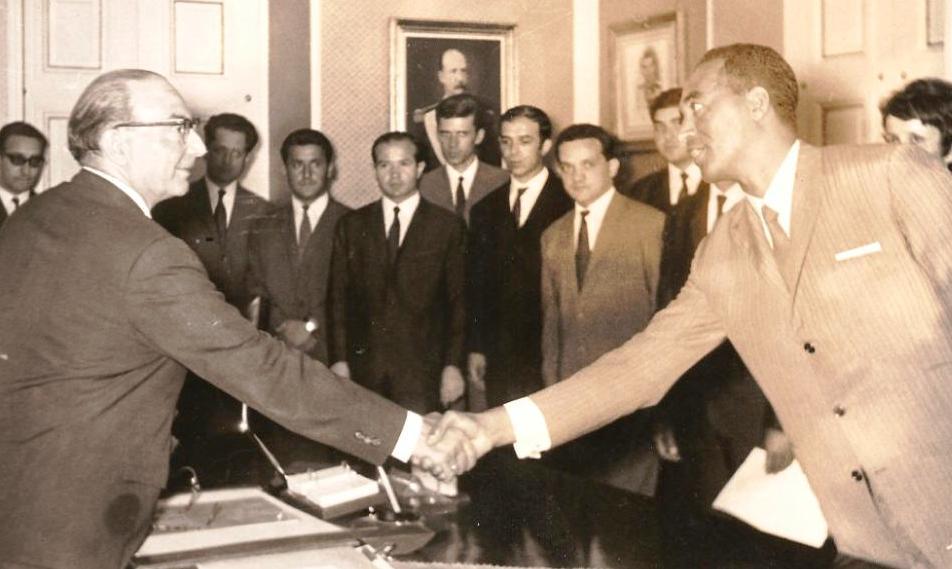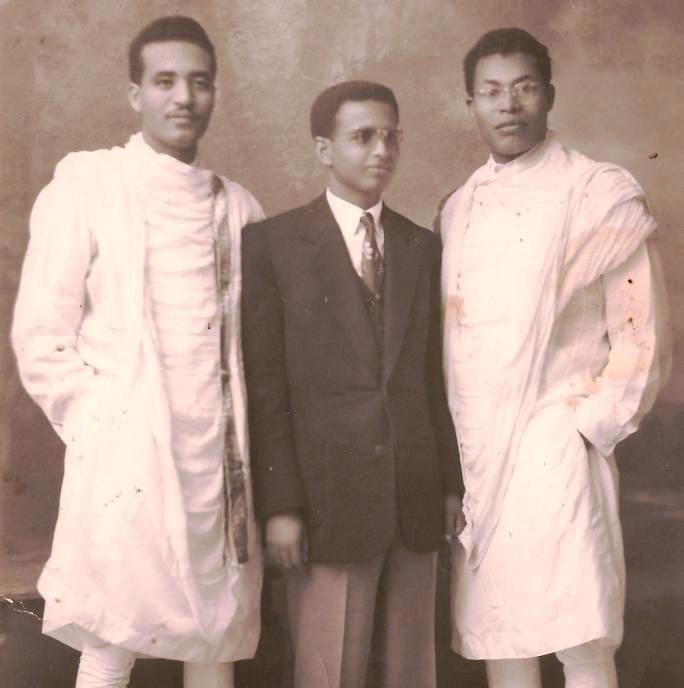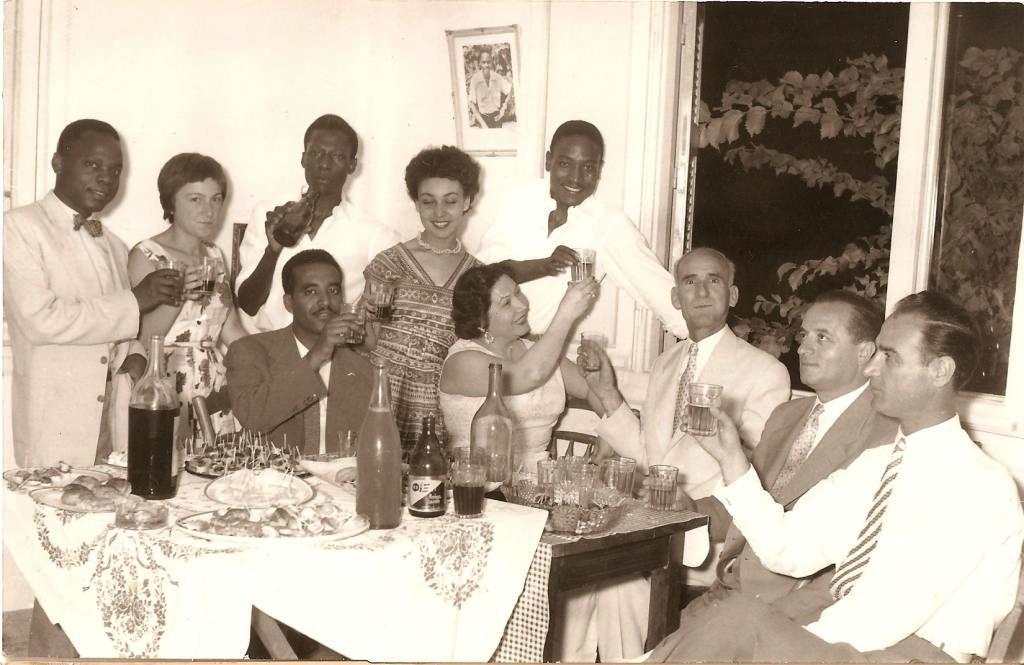
Ethiopians and Greeks
By Dr. Tsegaye Aga with M.T.A
"I wonder if rain water passes through their hair?" asked the girl of her friend seated next to her on the bus. I stopped speaking to my friend in Amharic and turned back around on my seat and said in fluent Greek, "Yes, my dear, the rain water will pass through our hair."
The shock on their faces was palpable; they began to apologize profusely all the way to our destination, which was Athens University.
The year was 1956 and the author was fortunate enough to have been about to receive his PhD in Greece, the first black person to do so.

There was a time in Greece when racial differences were only a cause for curiosity and awe. Some incidents even made us laugh.
For instance, my friends and I were dressed up in the traditional all white outfit of Ethiopia for a holiday we were celebrating, when a passerby, matter-of-factly stated to his friends that, we look like flies in milk.
We couldn't help but laugh and when they understood we spoke Greek, they too apologized.

I mentioned these two episodes to show the innocence of the time. The comments the Greeks made stemmed more from seeing something unique, than from an evil disposition.
I must also point out that the hospitable nature of the Greeks during my time there was second to none. Ethiopians and Greeks got along very well.

On the contrary, nowadays, I encounter many Ethiopians and Ethiopian Greeks who live or lived in Greece that complain of the ever present climate of racism and hate that permeates that beautiful country. Today's xenophobia, which has gangs of youth beat up on foreigners, can be blamed on the country's financial woes, but yet in still, efforts have to be made to bring this degradation of moral values to an end.
Ethiopia and Greece share many similarities, the most obvious being their rich and ancient historical backgrounds. Both cultures have also been known to come in contact with one another throughout the ages.
Homer, one of ancient history's greatest poets first referred to Ethiopians by using the Greek words "aitho" and "opsi". Contrary to popular belief, the negative sounding "burnt face" definition is incorrect.
The words in English that best matches those ancient words would be "sun tanned" as from "heliotherapy" or therapy from the sun.
The first presence of Greeks in Ethiopia was said to have been sailors and craftsmen who were instrumental in the commerce between 18th century Abyssinia (Ethiopia's name at the time) and Europe.
Later refugees from Smyrna were present in Gondar during Emperor Iyasu II's reign.
The Greek community continued to grow and by 1908, the Patriarch of Alexandria set up the Holy Metropolis of Axum.
By the end of the Second World War, there were many Greeks present throughout the country, but the majority resided in the capital Addis Ababa and in Dire Dawa, where they helped build the country's railroad system, while living in an encampment called "Greek Camp", which Emperor Haile Selassie had provided for them.
The souring of relations between the two countries can also be blamed upon the Greek educational system, for not enlightening modern Greeks about the close relationship we both share.
Facts as important as, Emperor Haile Sellassie's generous act of sending thousands of livestock to Greece during the Second World War, in order to prevent starvation in the country, should not be forgotten.
I can understand a modern European country's reluctance to remember the act of receiving aid from an African country.
But let's take Norway for an example. The Scandinavian country has not forgotten Ethiopia's contribution during their time of difficulty, but has instead embraced it and drawn upon it as a medium for closer relations.
Greeks in Ethiopia have also been subject to unwarranted acts of detestation, albeit from the government and not directly from the people. During the 1970's, the Derg communist regime's distrust of foreigners resulted in the confiscation of property and this inevitably led the majority of Greeks to go back to Greece, with only a few remaining in the country.
This at a time when the Greeks were prospering throughout the country in every trade imaginable, they were owners of soap factories, exporters of coffee, they ran bakeries, etc. Their contribution to the country must not be overlooked.
Even the Emperor Haile Selassie's personal physician was a Greek man named Dr. J.G. Zervos.
Today, only a handful of Greeks are present in Ethiopia. The once great Greek community in Ethiopia is but a shadow of its former past. Unfortunately, even Bambis Supermarket, a 67 year old institution that symbolized the presence of Greeks in Ethiopia, is now facing closure.
On the other hand, Turkish investment and involvement in Ethiopia is skyrocketing, with Turkish factories and businesses popping up all over the country.
Although, the Greek Ambassador to Ethiopia Nikolaos Patakias, insists that Greek investment and trade with Ethiopia is increasing, it leaves much to be desired.
It is high time that these two ancient countries with histories intertwined come full circle once more and take their relationship more seriously, both in economical and cultural terms. We have much to offer one another and the new generation needs the support from us old timers in every way possible.
It is the hope of this author that the Ethiopian Greek community puts more effort into its resurgence for the benefit of the younger generation and a brighter future for both ancient countries.
